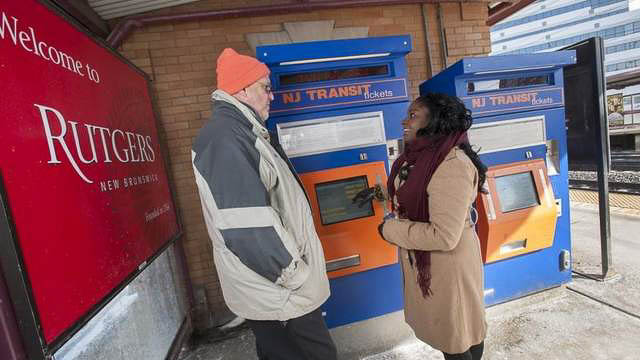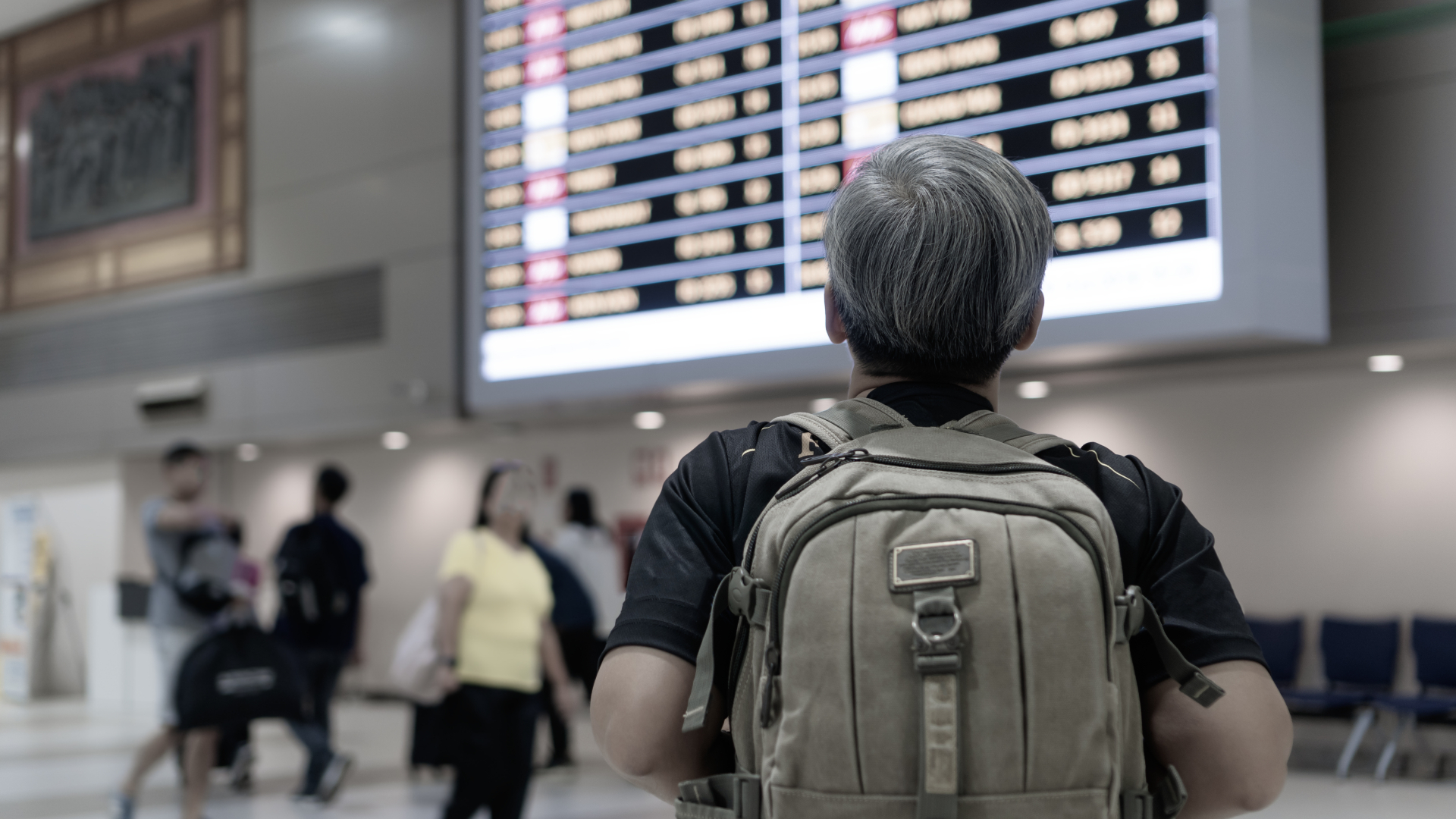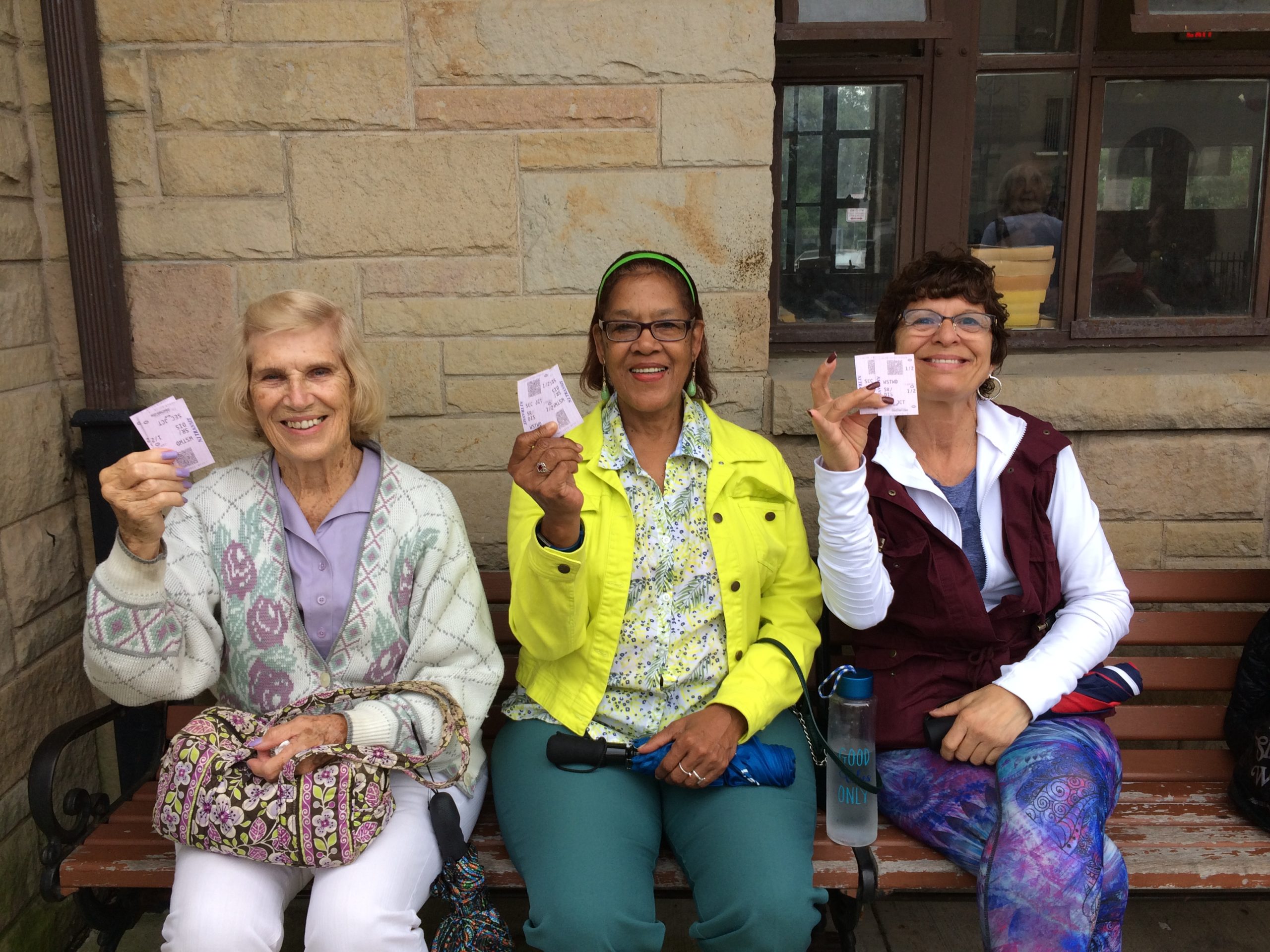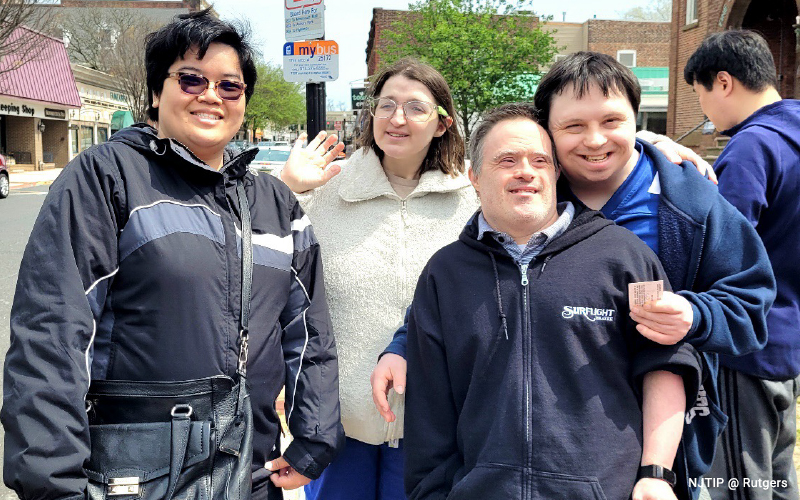New Jersey Travel Independence Program @ Rutgers (NJTIP)
What is the NJ Travel Independence Program @ Rutgers (NJTIP)?
The mission of the New Jersey Travel Independence Program @ Rutgers (NJTIP) is to increase the independence and self-sufficiency of people with disabilities, older adults, and others by empowering them to use the public transit system safely and independently.
Watch to learn more about NJTIP.
View the NJTIP @ Rutgers Brochure
In 2013 NJTIP merged with the Alan M. Voorhees Transportation Center (VTC), a national leader in transportation research and education and the nucleus of transportation-related policy research, training and education at Rutgers University’s Edward J. Bloustein School of Planning and Public Policy.
Check out NJTIP @ Rutgers’ Services Summary!
Since 2005 NJTIP has worked with a variety of government agencies, community organizations and schools to teach travel skills to more than 15,000 individuals.
What is Travel Instruction?
Travel Instruction is a spectrum of services meant to teach safe independent travel skills on public transit: the bus, train, light rail, county and private systems. NJTIP customers learn how to read bus and train schedules; plan their trips; pay their fares; and take safety precautions.
After finishing training, our customers enjoy traveling on their own to go to work, school and medical appointments and to visit family and friends.
NJTIP Travel Instructors are seasoned professionals with experience in teaching, special education and assisting individuals with special needs.
Travel Instruction Services

One-on-One Travel Instruction
NJTIP One-on-One travel pairs each customer with a Travel Instructor. The instructor teaches travel skills by riding on the bus or train with the customer until the customer is ready to travel independently.
The only cost to customers during training is paying their own fares. Upon graduation, each graduate receives a travel incentive.
One-on-One services are available to customers who have applied to Access Link and live in Bergen, Camden, Essex, Hudson, Mercer, Middlesex, Morris, Passaic, Somerset, and Union Counties, except for those with visual impairments. Online training is available statewide.

Group Travel Instruction
Our Small Group Travel Instruction Familiarization & Orientation programs benefit senior citizens and people with disabilities who do not need intensive one-on-one training and enjoy the camaraderie of learning in a group setting.
Groups participate in classes and escorted trips to popular local destinations such as shopping malls, supermarkets, and transit hubs.

Connect-to-Transit Seminars
NJTIP Travel Instructors teach professionals and volunteers from social service agencies, schools, and senior residences how to become informed advocates for public transportation, so they can better assist their clients, students, and residents with navigating the public transportation network.

In-School Travel Instruction
NJTIP @ Rutgers has developed classroom curriculum for students in high school transition programs. NJTIP Travel Instructors teach weekly classes at each school and lead monthly field trips for practical experience.
We also teach traffic safety skills and bus familiarization for students who are not ready for independent travel.
Interested in Travel Instruction?
We are taking all referrals so please fill out this ONLINE FORM and we will get back to you soon!
Program Staff

Andrea Lubin
Managing Director and Senior Research Specialist

Jeffrey Dennis
Travel Instructor

Jackie Ng
Program Coordinator and Travel Instructor

Linda Rapacki
Research Program Coordinator and Travel Instructor
Contact Us
For more information about NJTIP @ Rutgers, please contact us at:
Phone: 848-932-4499
Email: njtip_info@njtip.rutgers.edu
Rutgers University is committed to a working and learning environment for all faculty, staff and students that is free from discrimination and harassment, including sexual harassment. The university strictly prohibits discrimination and harassment based on membership in certain enumerated protected classes (“protected classes”). These classes are race, religion, color, national origin, ancestry, age, sex, sexual orientation, pregnancy, gender identity and expression, disability, genetic information, atypical hereditary cellular or blood trait, marital status, civil union status, domestic partnership status, military service, veteran status, and any other category protected by law. Harassment is a form of discrimination and, therefore, harassment directed toward an individual or group, or experienced by an individual or group, based on membership in a protected class, also violates university policy.
Discrimination and harassment compromise the integrity of the university and unfairly interfere with the opportunity for all persons to fully participate in the academic, work, and living environment at Rutgers. The university recognizes the human dignity of each member of the Rutgers community and believes that each member has a responsibility to promote respect and dignity for others so that all employees and students are free to pursue their educational and work goals in an open environment, participate in the free exchange of ideas, and to share equally in the university’s employment and educational opportunities. To achieve this end, the university strives to foster an academic, work, and living environment that is free from discrimination and harassment on the basis of membership in the protected classes referenced above.
Any person who believes that she or he has been aggrieved by any unlawful discriminatory practice under Title VI or under University policy may file a complaint in writing or obtain more information through the University’s Office of Enterprise Risk Management, Ethics, and Compliance, seven days a week, 24 hours a day, by telephone and online.
- The compliance hotline telephone number is: 1-800-215-9664
- Reports may be submitted electronically at: https://erm.rutgers.edu/departments/compliancehotline.html
Transportation services provided by Rutgers University are in part funded through federal funds received through NJ TRANSIT and as an individual you also have the right to file your complaint with the Federal Transit Administration in writing and may be addressed to:
Title VI Program Coordinator, East Building, 5th Floor – TCR, U.S. Department of Transportation, Federal Transit Administration, Office of Civil Rights
1200 New Jersey Avenue, SE, Washington, DC 20590
If information is needed in another language, contact 732-932-7211. Si necesita información en otro idioma, contacta con 732-932-7211.


